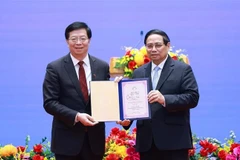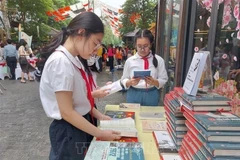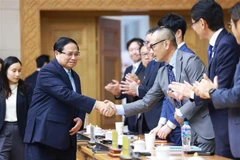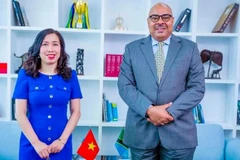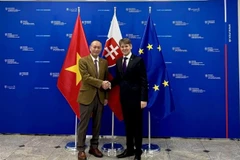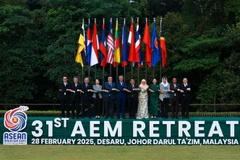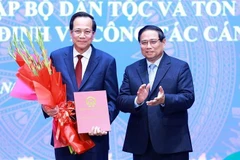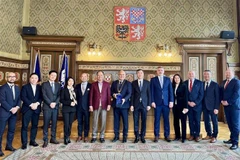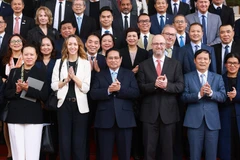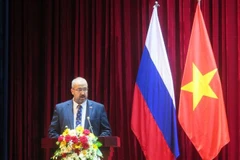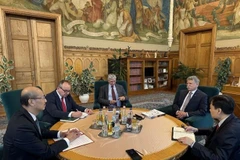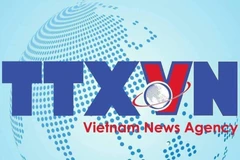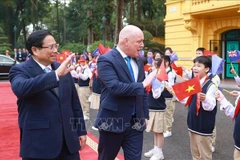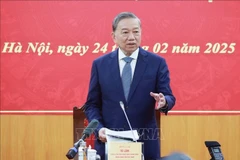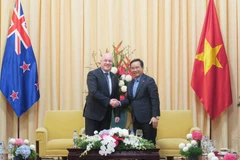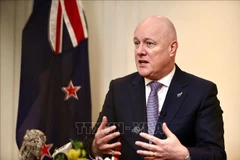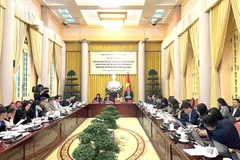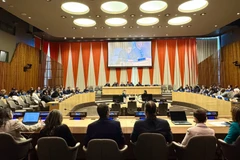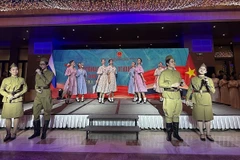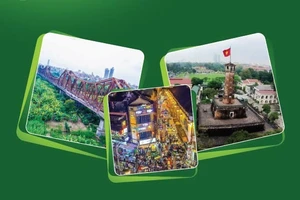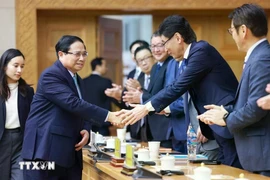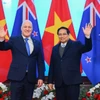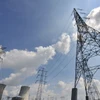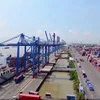Defence Minister General Phung Quang Thanhsaid through meetings, the two sides were resolved to grow together formutual benefits, through the signing of important cooperationagreements, especially in economics, transport connection, andpeople-to-people exchange, including an agreement on the United Nationspeacekeeping cooperation between the Vietnamese Ministry of NationalDefence and its Chinese counterpart.
The two sidesadmitted the East Sea issue remains their outstanding matter and agreedto settle their differences surrounding it peacefully, seriously adhereto the Declaration on the Conduct of Parties in the East Sea, and worktowards the building of a code of conduct in the waters, he stressed.
They also agreed to well manage sea-related disputesto maintain a peaceful and stable environment for their common interestsas well as the regional stability, the General noted.
He said the defence ministers of all ASEAN member countries will meetwith their Chinese counterpart in China in November to seek to reinforcedefence cooperation and control disputes for peace, stability, andnavigation and aviation security, safety and freedom at sea.
Minister of Industry and Trade Vu Huy Hoang said via the meetings, thetwo countries affirmed that they are close economic partners, citingtwo-way trade value reaching 60 billion USD in 2014 and their set goalof 70 billion USD by 2017.
During the visit, the twosides agreed to seek all possible measures to foster their economiccooperation, including stepping up the implementation of agreements onexporting Vietnamese farm produce to China and the construction ofcross-border cooperation zones.
China promisedfavourable conditions for Vietnam to conduct trade promotion activitiesmore effectively, he said, noting that the Southeast Asian countrycompleted procedures needed for the opening of its first trade promotionoffice in Chongqing city and is about to put similar agencies intooperation in other cities.
Hoang said the two sidesalso agreed to negotiate about supplements to their cross-border tradeagreement signed in 1998 or about a new agreement in order to balancetheir trade and bring more benefits to their border communities.
He expressed his belief that with the outcomes reached during thevisit and recent agreements inked between the two Governments, thecountries’ economic affiliation will be increased qualitatively andquantitatively.
Meanwhile, Minister of Planning andInvestment Bui Quang Vinh highlighted the signing of a large number ofsocio-economic cooperation documents, including a document on continuingto review the planning on their socio-economic cooperation for the2012-2016 period.
Vinh recalled that he and ChineseMinister of Commerce Gao Hucheng agreed to ask their working groups toreview Vietnam’s key investment projects under the above-mentionedplanning, inked in 2011, and adjust them to adapt to current conditions,thus facilitating investments in major joint projects.
The two sides also agreed to foster Vietnam’s investments in China andvice versa, as well as the construction of buildings symbolising thecountries’ friendship such as the Vietnam-China friendship culturalpalace in Hanoi, he added.
He said in August he willlead an inter-sectoral delegation to work with the Chinese side oninfrastructure cooperation projects, including the feasibility study onthe Lao Cai-Hanoi-Hai Phong express railway which will be linked withChina’s Yunnan province.-VNA
